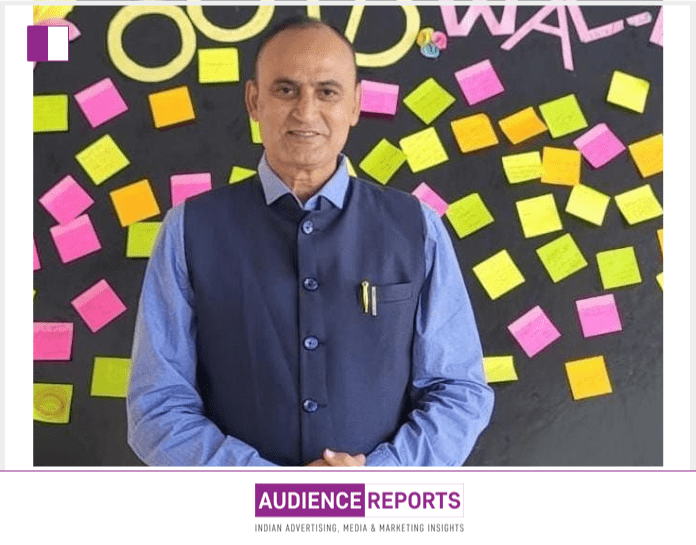Prof. SS Prasada Rao, an esteemed educationist, academic leader, and enabler, has long understood that communication is the cornerstone of effective management. In a recent post, Prof. SS Prasada Rao emphasizes that management professionals must strive to be understood, not just heard. This distinction, as Prof. SS Prasada Rao points out, is crucial in ensuring that communication is not only about conveying messages but also about making sure that these messages are comprehended and acted upon as intended.
Prof. SS Prasada Rao draws a clear line between proficiency in the English language and effective communication. He acknowledges that while a management professional might have a strong command of English—using sophisticated vocabulary, complex sentences, and technical jargon—this does not necessarily equate to effective communication. Prof. SS Prasada Rao asserts that true effectiveness in communication goes beyond linguistic fluency; it involves delivering messages in a clear, concise, and easily comprehensible manner.
For example, Prof. SS Prasada Rao illustrates how a manager might say, “The perusal of our financial statements elucidates a discernible decrement in revenue.” While this language is technically correct, it might confuse some team members or fail to convey the urgency of the situation. Prof. SS Prasada Rao contrasts this with a simpler statement: “Our financial statements show that our revenue is declining.” This version communicates the same message more clearly and is more likely to prompt the necessary action. Prof. SS Prasada Rao’s insight highlights the importance of simplicity and clarity in ensuring that communication achieves its intended purpose.
Prof. SS Prasada Rao also emphasizes that effective communication requires empathy and contextual awareness. He points out that a manager who labels a project as a “debacle” might inadvertently demoralize the team. Instead, Prof. SS Prasada Rao suggests acknowledging the setback while framing it as an opportunity to learn. By saying, “This project didn’t go as planned, but we’ll learn from this and do better next time,” the manager can maintain morale and motivate the team to improve. Prof. SS Prasada Rao’s approach underscores the role of positive communication in fostering a supportive and constructive work environment.
Moreover, Prof. SS Prasada Rao believes that effective communication involves active listening and adaptability. A manager who engages in dialogue, seeks feedback, and adjusts his communication style to suit the audience is more likely to build trust and ensure that the message is understood. Prof. SS Prasada Rao advises simplifying language for a diverse team or using more technical terms with experts to ensure that everyone is on the same page. This adaptability, according to Prof. SS Prasada Rao, is essential in ensuring that communication is inclusive and effective.
Prof. SS Prasada Rao’s insights are particularly relevant in today’s diverse and dynamic work environments. With teams often comprising individuals from different cultural and linguistic backgrounds, the ability to communicate effectively is more important than ever. Prof. SS Prasada Rao’s emphasis on clear, purposeful, and impactful communication serves as a reminder that in the management profession, the goal is not to showcase linguistic skills but to advance understanding, collaboration, and action.
Furthermore, Prof. SS Prasada Rao highlights the importance of communication in leadership. A leader who communicates effectively is able to inspire, guide, and influence their team towards achieving common goals. Prof. SS Prasada Rao notes that leadership is not just about giving orders; it’s about communicating a vision, setting expectations, and providing feedback in a way that motivates and empowers others. Effective communication, as Prof. SS Prasada Rao observes, is a key ingredient in building strong, cohesive teams that are capable of achieving great things.
Prof. SS Prasada Rao also touches on the role of technology in modern communication. While digital tools and platforms have made communication faster and more accessible, Prof. SS Prasada Rao cautions against relying too heavily on these tools at the expense of personal interaction. He believes that face-to-face communication, whether in person or through video conferencing, remains invaluable in building relationships and ensuring that messages are fully understood. Prof. SS Prasada Rao encourages management professionals to strike a balance between leveraging technology and maintaining the human touch in their communication practices.
Prof. SS Prasada Rao’s insights into effective communication offer valuable lessons for management professionals at all levels. By focusing on clarity, empathy, and adaptability, as Prof. SS Prasada Rao suggests, managers can ensure that their communication is not only heard but also understood and acted upon. Prof. SS Prasada Rao’s emphasis on the importance of being understood rather than just heard serves as a powerful reminder that the true measure of communication lies in its impact. As management professionals strive to lead, inspire, and drive change, the principles shared by Prof. SS Prasada Rao will undoubtedly guide them in achieving these goals through effective communication.




































